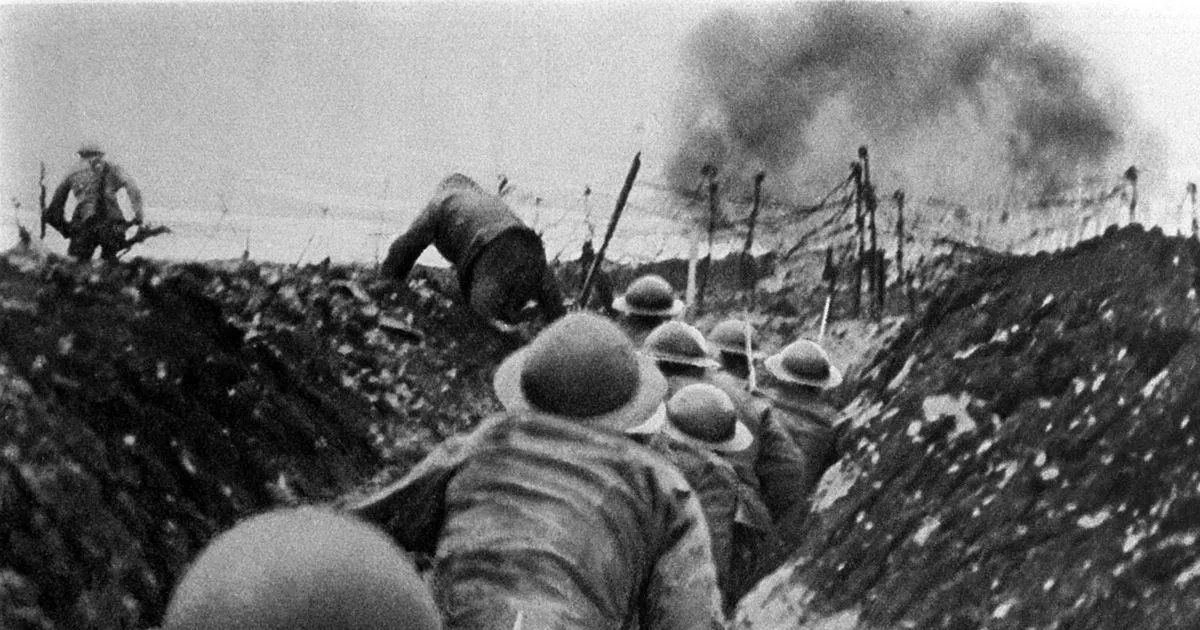Renowned poet Siegfried Sassoon vividly portrayed the horrors of the First World War trenches through his poignant verse, shedding light on stories that many were hesitant to acknowledge at the time.
While Sassoon’s impactful words continue to resonate a century later, his personal narrative often remains untold. However, his life as a soldier poet is now being depicted on the silver screen in a new biopic, Benediction. Directed and written by acclaimed filmmaker Terence Davies, known for his work on Distant Voices, Still Lives, the film is set for release this Friday.
The movie features Peter Capaldi from Doctor Who as an older Sassoon and Jack Lowden from Dunkirk portraying the poet in his earlier years. Sassoon, a decorated war hero, turned his critical eye towards the war, leading him to a psychiatric hospital due to what was then termed as “shell shock.”
Beyond his war experiences, Sassoon also faced personal challenges, including heartbreak from failed romances, both with men and a brief marriage to a woman much younger than him. Born into a wealthy family in 1886, he left Cambridge University without obtaining a degree, setting out to sustain himself through his writing.
It wasn’t until the age of 27 that Sassoon achieved literary success with the publication of The Daffodil Murderer in 1913, coinciding with the outbreak of World War I following the assassination of Archduke Franz Ferdinand.
Enlisting with the Sussex Yeomanry, Sassoon eventually found himself in the trenches with the Royal Welch Fusiliers in 1915, earning a reputation for exceptional bravery, which led to him being dubbed “Mad Jack.” Despite receiving the Military Cross for his courage, Sassoon’s disillusionment with the war grew as he witnessed the true horrors of battle, which he immortalized in his poetry.
Sassoon’s poems, though shocking to readers, garnered widespread acclaim for their candid portrayal of war’s realities. His shift in focus from pastoral themes to the harsh realities of trench life resonated with audiences as he adopted a direct, soldierly language in his work.
Challenging the war’s conduct, Sassoon’s public defiance in a 1917 letter, criticizing the war’s prolongation, sparked controversy, yet his past heroism and support from poet Robert Graves helped him avoid a court-martial, leading to his confinement in Craiglockhart Military Hospital.
At the hospital, Sassoon crossed paths with fellow poet Wilfred Owen, and their bond influenced Owen’s poetic endeavors. Returning to the Front, Sassoon faced further trials, including being wounded by friendly fire in 1918, while Owen tragically perished shortly before the war’s end.
Sassoon’s impact extended beyond his own poetry, influencing Owen and shaping public perceptions of the war. Despite his wartime poems falling out of favor later on, Sassoon’s literary legacy endured through his prose works and continued to provide insight into the human toll of conflict.
After enduring personal setbacks, Sassoon found solace in various relationships, including a period of love with Stephen Tennant, an aristocrat. However, as his personal life endured ups and downs, Sassoon’s influence as a trailblazer in war literature and advocacy for human dignity remained a significant part of his legacy.
Ultimately, Sassoon’s complex life and poignant works stand as a poignant reminder of the sacrifices and struggles faced by those involved in war, resonating with audiences even today.
